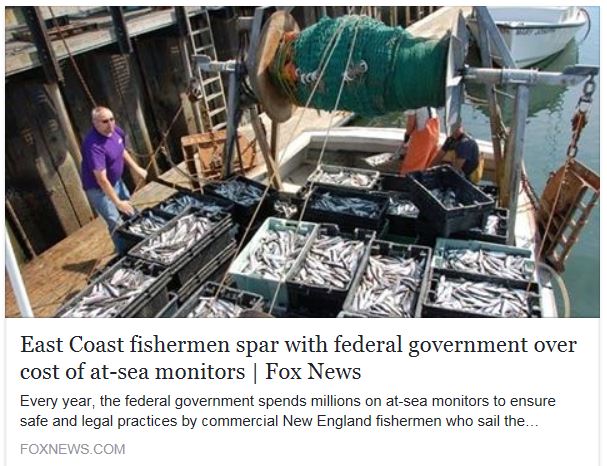The U.S. District Court for the District of New Hampshire held that the requirement is “an expected expense of doing business” for New England fishermen
WASHINGTON, D.C. – Today, the United States District Court for the District of New Hampshire dismissed the lawsuit filed by Plaintiffs David Goethel and Northeast Fishery Sector 13 against the U.S. Department of Commerce.
In December 2015, the Department of Commerce ordered that fishermen who fish for cod, flounder and certain other fish in the Northeast United States not only must carry National Oceanic and Atmospheric Administration (“NOAA”) enforcement contractors known as “at-sea monitors” on their vessels during fishing trips, but must pay out-of-pocket for the cost of those monitors. This “industry funding” requirement would devastate the Northeast fishing industry, at the price of many jobs and livelihoods. The District Court’s order allows that requirement to remain in place.
The Court found that the fishermen’s suit was untimely and that the requirement that monitors be funded by the fishermen was authorized by law.
“I am very disappointed by this decision,” said Goethel. “I’ve made a living fishing in New England for more than 30 years, but I can’t afford to fish if I have to pay for at-sea monitors. I’m grateful to Cause of Action Institute for joining the fight, and I hope that the rule of law will win in the end.”
“The fishermen in my sector can’t sustain this industry funding requirement,” said Northeast Fishery Sector 13 Manager John Haran. “They’ll have to try other fisheries, if they can keep fishing at all.”
“While we respect the District Court and its decision, it appears that decision is contrary to the law and facts,” said Alfred J. Lechner, Jr., President and CEO of Cause of Action Institute and a former federal judge. “In the end, the federal government is overextending its regulatory power and is destroying an industry. We intend to study the decision and consider further action.”
The District Court’s full opinion can be found here. For additional information about the case, visit the Cause of Action Institute website.


